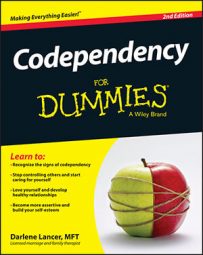That codependency is a disease was first suggested in 1988 by psychiatrist Timmen Cermak. Disease may sound morbid, but it only means a condition with discernible, progressive symptoms that impair normal functioning.
Alcoholism was termed an illness by the American Medical Association (AMA) in 1956. In 1991 the AMA categorized it as a disease along with drug dependencies. AA and clinicians had adopted the disease medical model long before, following the 1960 publication of The Disease Concept of Alcoholism by E. Morton Jellinick. This was considered a victory because it removed much of the shame around alcoholism for the individual and in society at large.
Since then, addiction experts have applied the medical model of disease to sex, food, and gambling addictions. So, too, with codependency. Some people object to the disease label because they claim it stigmatizes, discourages, and disempowers the person who is trying to recover.
They claim that it makes people believe they have no power to stop their addictive behavior and that they can never get well. Others disagree, saying that it removes shame and the punitive treatment of addiction, which should be treated with the same empathy and vigilance as a physical disease, such as diabetes or hypertension.
For years, people argued about whether a biological component of addiction was required to qualify addiction as a disease, and whether one could be identified. Today, brain scans of addicts reveal defects in the brain’s pleasure center that processes dopamine, which creates feelings of pleasure and satisfaction.
The same was found true for a behavioral addiction, like gambling. Whether the dysfunction in the pleasure center predates the addiction is an open question. Investigation continues to examine how genes play a part in addictions. Research has shown that environmental factors, including parenting and trauma, affect gene expression and the development of an addiction. Trauma and depression affect brain chemistry, but so do psychotherapy and behavioral changes, including positive thoughts and feelings.
Whether or not you believe codependency is an addiction or a disease, the choice to recover is yours. If you don’t like the labels, don’t use them.

